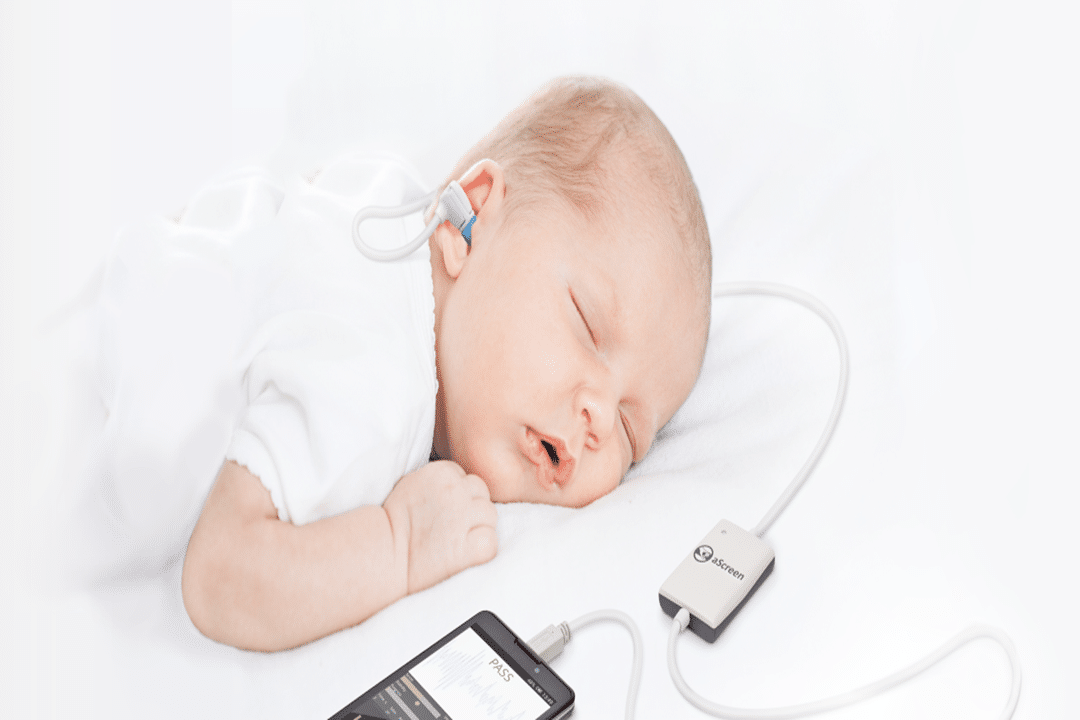Neonatal Hearing Screening and the Imperative of Early Intervention
Catagory: Children Author: Dr T.V Vijay Kumar

In the delicate symphony of infancy, the ability to hear is a precious gift that forms the cornerstone of communication, learning, and social development. I embark on a journey to unravel the significance of neonatal hearing screening and the critical role that early intervention plays in shaping the auditory well-being of newborns.
The Importance of Early Hearing Detection:
✅Discuss the pivotal role of hearing in a newborn’s overall development, from language acquisition to emotional bonding.
✅Emphasize the importance of identifying hearing impairments early, highlighting the impact on cognitive, speech, and social milestones.
Neonatal Hearing Screening Protocols:
✅Explore the methods and technologies employed in neonatal hearing screening, including otoacoustic emissions (OAE) and auditory brainstem response (ABR) tests.
✅Discuss the benefits of universal newborn hearing screening programs in identifying hearing issues shortly after birth.
Identifying Hearing Loss Risk Factors:
✅Highlight risk factors associated with congenital hearing loss, such as family history, low birth weight, and certain medical conditions.
✅Discuss the significance of targeted screening for infants with identified risk factors to ensure comprehensive auditory assessment.
Early Intervention Strategies:
✅Emphasize the urgency of early intervention in cases of identified hearing loss, outlining the benefits of prompt action.
✅Discuss the range of early intervention services, including hearing aids, cochlear implants, and speech therapy, tailored to meet the unique needs of each child.
Multidisciplinary Approach to Care:
✅Explore the collaborative nature of neonatal hearing screening and early intervention, involving audiologists, pediatricians, speech therapists, and educators.
✅Discuss the importance of ongoing communication and coordination among healthcare professionals to provide holistic support for families.
Educational Support and Family Involvement:
✅Address the vital role of educational support for families with infants identified with hearing loss, emphasizing the need for clear communication and guidance.
✅Discuss the empowerment of parents as advocates for their child’s hearing health and active participants in the intervention process.
Technological Advancements in Hearing Solutions:
✅Explore the latest advancements in hearing aid and cochlear implant technology for infants, highlighting the improvements in comfort, functionality, and accessibility.
✅Discuss how these technological innovations contribute to better outcomes for children with hearing loss.
Long-Term Impact on Development:
✅Examine the long-term impact of early intervention on the overall development of children with hearing loss, including language proficiency, academic achievements, and social integration.
✅Discuss success stories and research findings that underscore the positive outcomes associated with timely intervention.
Conclusion:
In the dawn of a child’s life, the melody of sound weaves a tapestry of connection, learning, and exploration. Through the lens of neonatal hearing screening and early intervention, we witness the transformative power of identifying and addressing hearing impairments with swiftness and precision.
By embracing the imperatives of early detection and intervention, we pave the way for a future where every child can fully participate in the rich tapestry of auditory experiences. In doing so, we not only champion the cause of individual well-being but also contribute to a society where the potential of every child is heard, celebrated, and nurtured.
Recent Post
-
Escort-Job In Nuernberg Erotische Schönheiten
-
Escorts Bremen - Heiße Escort-Divas
-
Escort Sex Hildesheim - Entdecke Leidenschaft
-
Take the next phase and find your brony match today
-
Munich Ladies Sex - Erotische Models
-
237620261720153799
-
Understanding Neonatal Jaundice: A Guide for New Parents by Dr. Vijay Kumar
-
The Importance of Immunizations: A Pediatrician’s Guide
-
Understanding Childhood Illnesses and Infections: Expert Insights
-
Neonatology FAQs: Expert Answers to Common Questions about Newborn Care
-
From Cradle to Playground: Essential Milestones in Pediatric Development
-
Navigating the First Days: A Neonatologist's Guide to Newborn Care
-
Expert Parenting Tips for Indian Parents: Dr. Vijay Kumar's Advice in Vijayawada
-
Baby Crawling: 10 Tips To Help Your Newborn Learn To Crawl
-
Healthy Sleep Habits for Kids
-
Children’s High Cholesterol
-
Diaper Rash Prevention and Treatment
-
Understanding Different Types of Cholesterol in Kids
-
Empowering Auditory Well-being: Neonatal Hearing Screening and Early Intervention Insights
-
Nurturing Hope: The Vital Role of Neonatal Intensive Care Units (NICUs) in Healthcare
